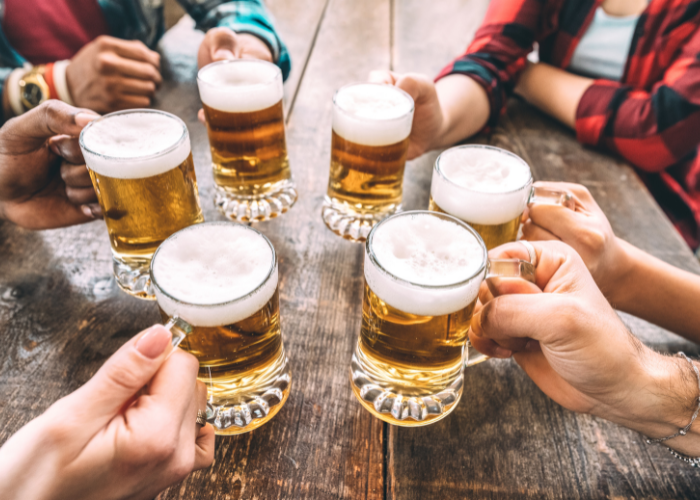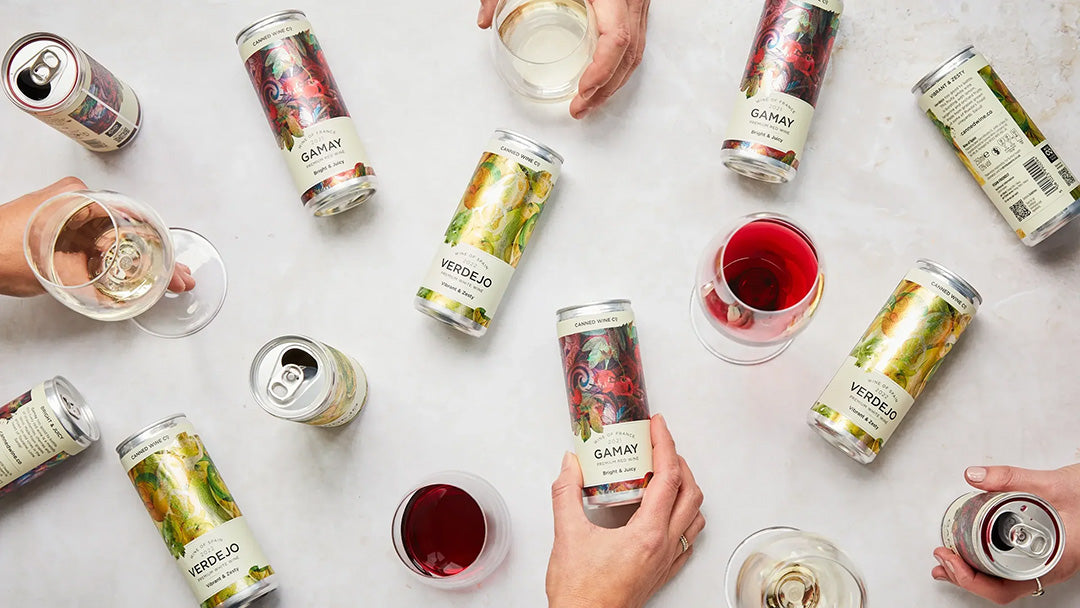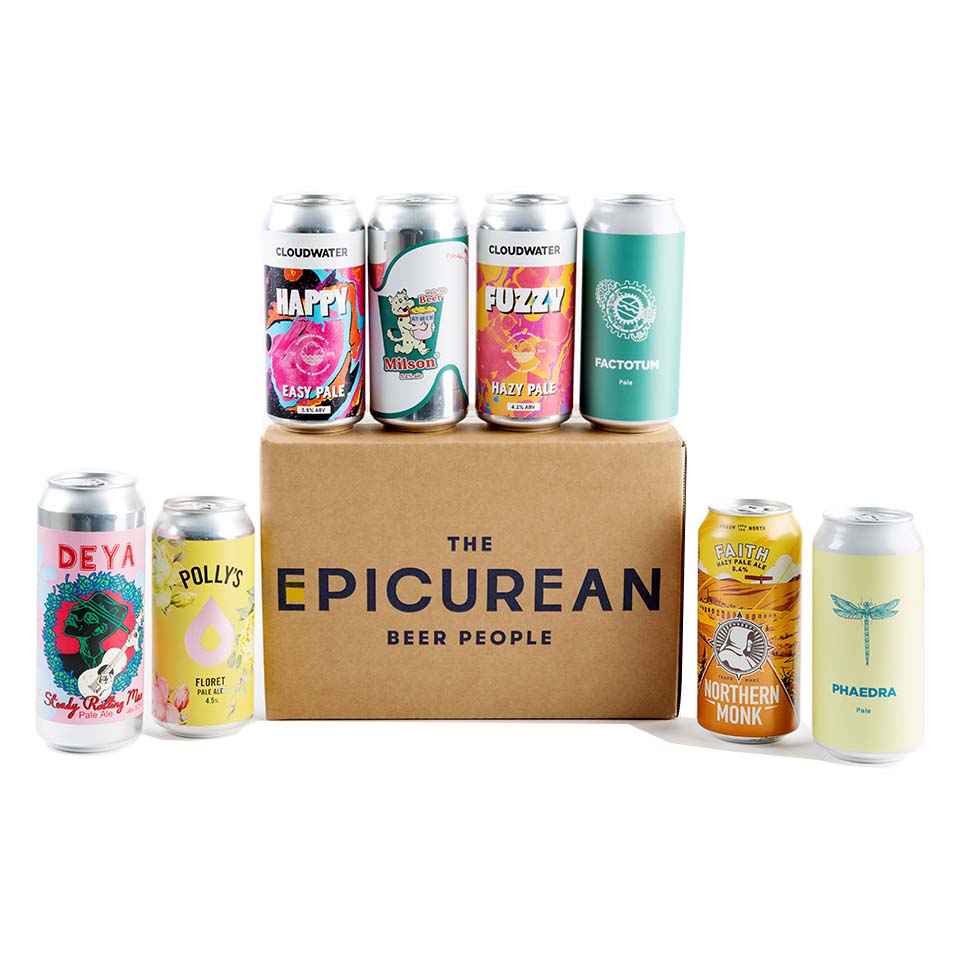
German beer guide
November 10, 2023
German beer has captivated drinkers across the globe for hundreds of years. Each region in Germany has its own styles and techniques used to create beer, which makes them stand out from the rest.
In today’s article, we will provide you with a complete German beer guide, and dive into the different types of beer and German culture.
German beer culture
There’s no better place to begin than with the German beer culture. Germany boasts a quite remarkable culture which dates back hundreds of years. Since the beginning, German people have worked tirelessly to perfect the perfect beer. Whether that be a classic German lager, pilsner, doppelbock, or Schwarzbier - it’s guaranteed to taste like perfection.
To discover the origins of German beer culture, we must travel back to 1516, when the Reinheitsgebot (Beer Purity Law) was established. This law was adopted throughout Germany, and it was put in place so that beer could only be brewed using four ingredients: water, malted barley, hops, and yeast. The regulation ensures the quality and purity of German beer, which has lasted to this day and there is plenty of evidence for it.
A huge integral part of German beer culture is beer gardens. A beer garden offers a relaxed atmosphere where friends and family can enjoy delicious beer, German food and socialise. Every region of Germany has a collection of beer gardens, but one area in particular that is known for some of the best is Munich. It holds famous beer gardens such as Augustiner Keller, Hirschgarten, and Biergarten Viktualienmarkt. Each of these offers an exciting invite to German food, beer and stunning local scenery. We highly encourage you to visit the Biergarten Viktualienmarkt. It’s located in the centre of Munich and it’s nestled between market stalls; you’ll have the chance to embed yourself within the roots of German culture.
Moreover, we can’t finish speaking about German beer culture without diving into their illustrious festivals. Germany is notoriously known for the exceptional beer festivals it hosts throughout the year, most notably Oktoberfest. This festival has attracted huge attention across the globe due to its wonderful array of German beers. It provides many brewers across Germany a platform to showcase their beers to the world and it’s been a roaring success. We can’t recommend you visit this festival enough, as it's on throughout every region of Germany. Finally, other notable beer festivals you must visit are Starkbierzeit in Munich and the Cannstatter Volksfest in Stuttgart.

Types of German beer
Germany is known for its incredible wealth of beer styles; each more different and unique than the last. Exploring each of these styles is a delightful way to experience the German craft beer scene.
Helles
The first type of German beer on our list is the good ol’ classic Helles. Helles is a traditional German lager which means ‘pale’ in German. The beer is known for its pale and malt-forward attributes with a balanced hop bitterness. Smooth, clean and slightly sweet in flavour - a German classic! Augustiner is a popular German beer brand which has produced some of the finest Helles lagers. Here at The Epicurean, we have some of Augustiner’s finest craft beers - don’t miss out on these beauties!
Weizenbier
The next type of German beer on our list is the Weizenbier. Weizenbier is a wheat beer which, as you can imagine, is made with a significant proportion of wheat. It gives the beer a cloudy appearance and a distinct banana and clove yeast aroma; which provides the drinker with a refreshing taste.
Kölsch
Third on our list is Kölsch, which is a beer-style native to Cologne, West Germany. Kölsch is known for containing fruity esters such as apple and pear. The beer tends to be light and drinkable, with its subtle fruitiness and spice. It's crisp and clean; two characteristics of a great beer.
Bock
Notoriously known as a strong lager, Bock, is the next type of beer on our list. Each Bock varies in strength, but typically they carry caramel, toffee, and dark fruit notes; which is a delight for beer enthusiasts.
Dunkel
Next, it’s the Dunkel. Dunkel means "dark" in German, which as you can guess, is dark beer. Known for its brown to dark brown colour, Dunkel offers a malty sweetness with nutty and caramel notes.
Schwarzbier
Schwarzbier is another dark lager, but don’t be deceived by their colour; they’re light and crisp. The beer is full of roasted malt flavours and carries a subtle bitterness with a dry finish. Not your average German lager, but one you should try.
Rauchbier
A unique and exciting type of German beer is next, the Rauchbier. Known for its smokey aroma and flavour, this beer is a huge favourite for locals and enthusiasts. It ranges from pale to dark and it has an original, savoury character to it. If you’re looking for something different - this is for you!
Berliner Weisse
The penultimate type of German beer on our list is the Berliner Weisse. This is a sour wheat beer style originating from Berlin. Typically, they’re low in alcohol and are known for their tartness.
Altbier
The final German beer on our guide is Altbier. Known as ‘old beer’, Altbier is amber and dark brown in colour, with a balanced malt and hop profile. There is a slight bitterness, but it carries a crisp, clean finish.

Top German breweries and their beer
There’s no better way to end our complete German beer guide than delving into the top breweries and beers; which let's face it - is what you’re here for!
In our opinion, the top 3 German breweries are Weihenstephan, Paulaner, and Ayinger. Each of these breweries has significant attributes which elevate it from the other competitors. For example, Weihenstephan Brewery is often regarded as the world's oldest brewery, dating back to the 11th century. The brewery is known for producing the iconic Weihenstephaner Hefeweissbier, which is a wheat beer that offers a perfect balance of banana and clove yeast esters. Weihenstephan has a deep history of values and iconic beers, two important components in the industry.
Moreover, Paulaner Brewery is another among the German elite. Located in the heart of Bavaria, Paulaner is known for its commitment to the beer purity law and its strong brewing traditions. Their most popular beer is arguably the Hefe-Weißbier, which is an example of the hefeweizen style. It offers the perfect balance of fruit and spice; a classic Bavarian beer that’s hugely popular with the locals.
Finally, Ayinger is another renowned German brewery which has received high praise for countless years. Similar to the previous two, Ayinger follows the original German tradition, whilst creating new and exciting flavours. The Ayinger Celebrator is a fine example of this. It’s a great example of the doppelbock style, which offers rich malt complexity with notes of toffee, caramel, and dark fruit. A true German delight which is rightly recognised across the globe.
We hope you’ve enjoyed reading our German beer guide. If you’d like to learn more about the subjects we’ve mentioned, or you would like to discover our German beer collection - get in touch with our friendly team today.
In addition, if you’re looking for something different, we can’t recommend our beer club high enough. Once you’ve signed up, you will receive the highest quality craft beer curated by our in-house experts each month. Interested? Reach out to our team today to learn more.
Auf Wiedersehen!





